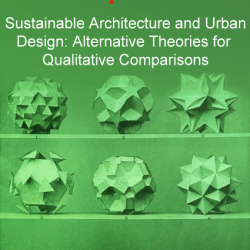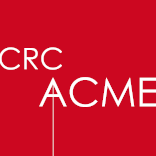
Carmela Cucuzzella et Jean-Pierre Chupin dirigent un numéro spécial du Journal of Sustainability Research
Journal of Sustainability Research (Journal en accès libre de Hapres)
Numéro special : « Sustainable Architecture and Urban Design: Alternative Theories for Qualitative Comparisons »
Since the turn of the century, theories and practices of sustainable architecture and urban design have been characterized by increasingly normative grids, such as standards, checklists, certifications, etc. As imperative as these normative grids are for ensuring a certain level of sustainability in the built environment, they may inadvertently avert the virtues of creative design practices to mere risk management exercises.
This is in clear contrast to the pioneering environmental design of the 1960s, when the search for holistic approaches gave rise to a spectrum of methodological experimentations, both in the field of design processes (design methodologies) and environmental studies. The formation of the Environmental Design Research Association (EDRA) in 1968 was an outcome of this search for qualitative as well as quantitative methodologies in the design disciplines. In the 1970s, environmentalism started to shift towards an ecological ideology soon dominated by technical solutions and the search for eco-efficiency. Systematically developed throughout the 1980s and 1990s, this technological emphasis for measurable efficiency started to reveal its limitations. Facing a problematic integration of cultural and social dimensions, this dominant approach founded on the management of eco-performances revealed a counterproductive hyper-technological paradigm for the design disciplines and their theoretical frameworks (Vesely, 2004; Perez-Gomez, 1983).
Numerous scholars now underline that these missing inter-subjective dimensions may be compromising the very idea of a holistic environmentalism in various realms of knowledge and action (Kagan, 2010; McLennan, 2004). Such is the case in the design disciplines, where a series of ethical issues are being identified at varying scales (Fisher, 2008). In the past twenty years, theoretical frameworks have induced or supported the normative rather than systemic methods to sustainable design. The more comparative and qualitative evaluative approaches that have been established in professional practice—design committees, collective judgment, competition juries—are still being overlooked by scholars as the foundation of evaluation and judgment. Furthermore, even if authors have sought to reveal critical theories for these dominant discourses, occurrences have been rare.
We believe it is now time to step back and rethink these dominant paradigms in order to provide new theoretical frameworks and methodologies for sustainable architecture and urban design. This special issue calls for the renewal of theories and hypotheses opening on a broadened evaluative and comparative framework. We welcome papers in the following three themes:
Professor Carmela Cucuzzella
Professor Jean-Pierre Chupin
Guest Editors
Submission Deadline: 30 April 2020
